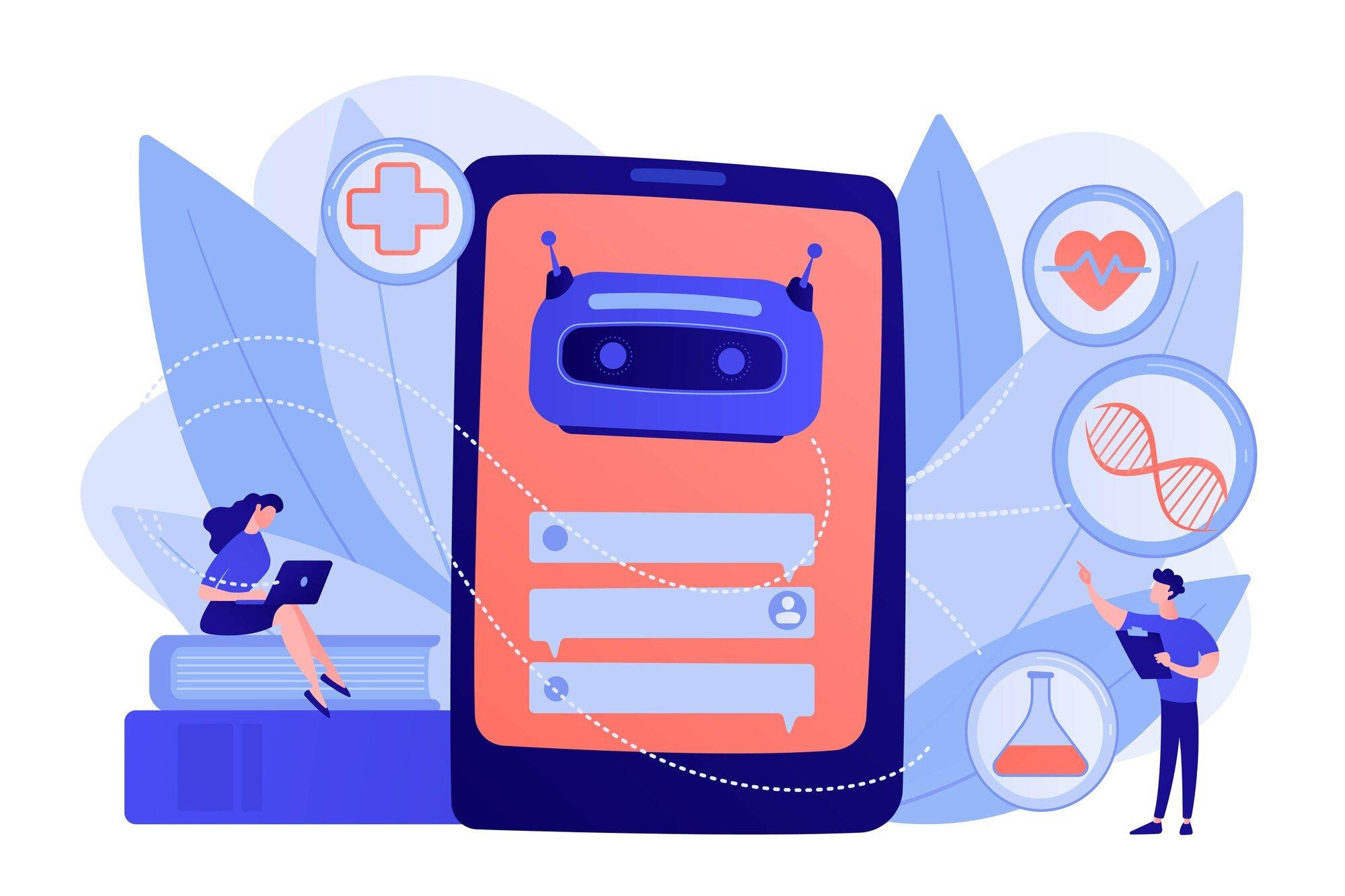AI is revolutionising the way businesses operate. One area where this is particularly evident is digital onboarding.
This process involves verifying identities and onboarding new customers. It's a critical step for businesses, especially in the finance sector.
AI is transforming this process. It's making digital verification more secure and efficient. It's also enhancing liveness detection, ensuring the person being verified is physically present.
But it's not just about security. AI is also improving user experience and streamlining compliance with regulations like AML and KYC.
This article will delve into how AI is revolutionizing digital onboarding. We'll explore the benefits, challenges, and future implications of this technology.
Join us as we navigate the exciting world of AI in digital onboarding.
The Transformation of Digital Onboarding with AI
Digital onboarding has dramatically changed with the integration of AI. This transformation is evident across various industries.
AI technology ensures the onboarding process is faster than ever before. Automated systems replace lengthy manual checks. Companies can now verify identities in a matter of minutes.
This efficiency not only saves time but also reduces the cost. Businesses see a significant decline in operational expenses. These savings are particularly noticeable in sectors like finance.
AI also enhances accuracy, minimizing errors. Traditional methods were prone to human mistakes. By contrast, AI-powered tools conduct precise verification every time.
Moreover, AI can adapt and learn over time. This ongoing improvement means onboarding processes continue to advance.
Businesses benefit from the latest technology, keeping them competitive. In a digital age, this adaptability is crucial for growth.

Enhancing Security with AI-Driven Digital Verification
AI enhances security through advanced digital verification methods. These systems provide robust protection against identity theft. AI tools analyze and verify digital identities with impressive accuracy.
Machine learning algorithms power these tools. They can detect unusual patterns and potential threats. This capability is crucial for safeguarding sensitive information.
AI ensures a high degree of precision in detecting fraudulent activities. Traditional methods cannot match the speed of AI verification. AI can analyze data across numerous parameters in seconds.
Moreover, AI solutions are constantly evolving. Continuous learning from vast datasets allows them to refine their performance. This adaptability means staying ahead of emerging threats.
Adopting AI in digital verification aligns with stringent regulatory standards. Companies can ensure compliance effortlessly. This compliance is particularly beneficial in industries dealing with sensitive data.
The Role of Liveness Detection in Preventing Fraud
Liveness detection plays a vital role in fraud prevention. It confirms that the person being verified is physically present. This reduces the risk of spoofing attacks.
By evaluating facial movements and expressions, AI can detect signs of life. This method goes beyond static images, which can be easily manipulated.
Advanced liveness detection ensures a higher level of security. It adds an extra layer to the verification process. Businesses can trust that only genuine users gain access.
Additionally, this technology is user-friendly. Users can complete verifications quickly without hassle. Efficiency does not compromise safety.
As fraud techniques become more sophisticated, liveness detection must keep pace. It offers businesses a proactive approach to security challenges. Confidence in digital verification processes is thus maintained.
AI and the Fight Against Money Laundering (AML)
AI is a key player in combating money laundering. It helps organizations meet Anti-Money Laundering (AML) regulations. Automation of complex checks streamlines the compliance process.
AI systems can quickly analyze vast amounts of data. This capability enables rapid identification of suspicious transactions. Unusual patterns in financial dealings are flagged for review.
Moreover, AI reduces human error in monitoring transactions. Automated tools provide more accurate results compared to manual checks. This improves the overall effectiveness of AML efforts.
Integrating AI into AML strategies enhances risk assessments. AI's predictive capabilities allow for better decision-making. Organizations can detect potential threats before they escalate.
Additionally, AI-driven tools can be tailored to meet specific compliance needs. This customization ensures that AML efforts are as effective as possible. In the fight against money laundering, AI's role is indispensable.
Streamlining ID Verification with Optical Character Recognition (OCR)
AI streamlines ID verification through Optical Character Recognition (OCR). OCR technology transforms physical document data into digital form. This process is fast, reducing wait times significantly.
Organizations can extract critical information swiftly using OCR. Automated extraction ensures precision, minimizing manual intervention. This reduces errors and expedites verification procedures.
Moreover, OCR supports diverse document types and languages. Companies operating globally benefit immensely from this flexibility. It enhances their ability to verify identities regardless of origin.
By integrating OCR, businesses increase efficiency and security. The automation of data capture removes bottlenecks in the onboarding process. AI-driven OCR solutions pave the way for smooth and reliable verifications.
Cross-Referencing Data for Authenticity and Compliance
AI excels at cross-referencing data to ensure document authenticity. It checks extracted information against vast databases. This confirms the legitimacy of identity documents.
Cross-referencing detects discrepancies promptly. Immediate alerts highlight potential issues, enabling quick action. Rapid responses prevent fraudulent access and maintain security.
Compliance with regulations like KYC is simplified. AI tools ensure thorough customer due diligence effortlessly. Regulatory adherence is achieved with fewer resources and less time.
AI adapts its checks to align with evolving rules and standards. Continuous updates to AI models ensure ongoing compliance. Businesses remain confident their processes meet regulatory demands.

The Impact of AI on KYC Regulations and Customer Due Diligence
AI significantly impacts how businesses approach KYC regulations. Compliance becomes more manageable with AI's speed and accuracy. Organizations can quickly gather and analyze vast amounts of customer data.
AI enhances customer due diligence through automated processes. These processes ensure comprehensive background checks are completed efficiently. AI applications minimize the burden of manual data collection.
Furthermore, AI tools adapt to regulatory changes seamlessly. They are designed to update in line with new compliance requirements. As a result, businesses remain compliant with minimal disruptions.
Finally, AI provides detailed insights during the onboarding process. These insights help identify potential risks and anomalies early. With AI, the KYC process becomes a proactive component of customer management.
Reducing Human Error and Manual Workload in Onboarding
AI greatly reduces human error in digital onboarding processes. Automated systems ensure consistent accuracy across every verification task. This eliminates the inconsistencies typical of manual processing.
Moreover, AI systems handle mundane data entry tasks with ease. This automation allows human staff to focus on complex decision-making. It enhances overall productivity and efficiency within the organization.
Additionally, AI-driven onboarding streamlines the workflow significantly. Fewer resources are needed to handle large volumes of onboarding tasks. Companies can thus allocate their human resources more effectively.
The Future of AI in Digital Onboarding: Beyond Verification
AI in digital onboarding is evolving rapidly. Beyond simple verification, AI is setting a new standard for comprehensive identity solutions. It promises both greater security and improved user experiences.
Future AI solutions will likely include predictive analytics capabilities. These tools anticipate fraudulent behavior before it happens. Such proactive features provide an added layer of protection for businesses.
Integration of AI with other technologies is another exciting prospect. For instance, blockchain can enhance data security and integrity. This combination offers a robust approach to secure digital identities.
Moreover, AI will continue to improve accessibility in digital onboarding. By supporting various languages and devices, it accommodates a diverse global user base. This adaptability is crucial in our increasingly interconnected world.
Addressing Privacy Concerns and Data Protection
Privacy remains a top priority in AI solutions. AI systems must comply with stringent data protection regulations. This ensures user data remains confidential and secure.
Sophisticated encryption methods protect sensitive information during processing. These methods are a critical component of trusted AI systems. They help prevent unauthorized access and data breaches.
User trust is also bolstered by transparency. Providing clear insights into how data is used builds confidence. It's crucial for companies to communicate their AI data policies effectively.
The Evolving Landscape: Voice Recognition and Advanced Biometrics
AI is set to transform digital onboarding with voice recognition. This technology offers seamless and secure authentication options. It represents a step forward in user convenience and safety.
Advanced biometrics such as fingerprint and retina scans are also gaining traction. These methods offer reliable identity verification. Their high accuracy makes them increasingly popular for secure access.
Moreover, AI continuously improves these technologies' precision. By learning from vast datasets, AI enhances both speed and reliability. This ensures they remain effective against sophisticated fraud attempts.
Real-World Applications and Industry Adoption
AI in digital onboarding is making significant inroads across various sectors. Banks and financial institutions are at the forefront, utilizing AI to streamline onboarding and improve compliance with KYC and AML regulations. This not only enhances efficiency but also fortifies security measures against potential fraud.
In healthcare, AI-driven verification processes enable faster patient onboarding. They ensure accurate identity checks while maintaining compliance with data protection laws. This is essential in providing swift yet secure access to critical health services.

Telecommunications companies are also embracing AI onboarding solutions. They use these technologies to manage vast customer bases efficiently. AI helps them offer seamless service transitions and ensures that identity verification processes are both robust and user-friendly.
Conclusion: Balancing Innovation with Regulation
AI in digital onboarding is undeniably transformative, offering enhanced security and efficiency. However, innovation must align with regulatory frameworks to ensure ethical use. Businesses must navigate the complex landscape of privacy and compliance.
Regulators play a pivotal role in this balancing act. They provide guidelines to prevent misuse of AI technologies and uphold data protection standards. Continuous dialogue between stakeholders is essential to fostering trust.
AI's potential is immense, but its deployment needs careful planning. Companies should prioritize transparency and accountability, ensuring that the integration of AI benefits both their operations and their customers.
Your Questions Answered
Question: How is AI transforming digital onboarding?
Answer: AI is revolutionizing digital onboarding by automating identity verification, enhancing liveness detection, improving user experience, and ensuring compliance with regulations like KYC and AML. It speeds up the process, reduces costs, and improves accuracy.
Question: What role does AI play in digital identity verification?
Answer: AI analyzes biometric data, detects anomalies, and cross-checks information against databases to verify identities with high precision. It reduces the risk of fraud and automates tasks that previously required manual oversight.
Question: How does liveness detection work in AI-driven onboarding?
Answer: Liveness detection uses AI to verify that a real person—not a static image or video—is present during identity verification. It analyzes facial movements, expressions, and other biometric cues to prevent spoofing attacks.
Question: How does AI assist with AML and KYC compliance?
Answer: AI automates complex checks and continuously monitors transactions to flag suspicious activity. It improves the efficiency and accuracy of Anti-Money Laundering (AML) and Know Your Customer (KYC) processes, while adapting to evolving regulations.
Question: What is the impact of OCR in AI-powered ID verification?
Answer: Optical Character Recognition (OCR) technology allows AI to extract data from physical identity documents accurately and instantly. This minimizes manual data entry and reduces errors in the onboarding process.
Question: How does AI help reduce human error in onboarding?
Answer: AI automates repetitive tasks such as data entry and identity matching, ensuring consistency and reducing the chances of manual mistakes. This streamlines the onboarding workflow and improves overall productivity.
Question: What are the future trends of AI in digital onboarding?
Answer: Future developments include predictive analytics for fraud prevention, integration with blockchain for secure identity management, and wider use of advanced biometrics and voice recognition for enhanced authentication.
Question: How does AI address privacy and data protection concerns?
Answer: AI systems are designed to comply with strict data protection laws like GDPR. They use encryption, anonymization, and transparent data usage policies to ensure user privacy and build trust.
Question: Which industries are adopting AI-powered digital onboarding?
Answer: Financial services, healthcare, and telecommunications are leading adopters. They use AI to enhance security, accelerate onboarding, comply with regulations, and improve customer experiences.
Question: How can businesses balance innovation and regulation in AI onboarding?
Answer: By following regulatory guidelines, being transparent about AI usage, and ensuring robust data protection, businesses can harness the benefits of AI while maintaining ethical and legal compliance.
